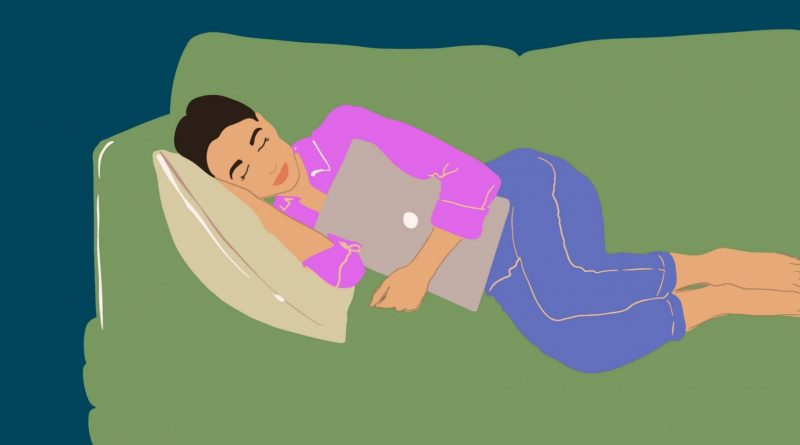Why you shouldn’t accept always feeling tired
In our super-busy, always-on world, it feels normal to have exhaustion as our baseline state. But that shouldn’t be the case, says Karina Antram. It’s time for change.
“It’s not normal to feel tired all day, every day,” writes coach and nutritionist Karina Antram in her new book, Fix Your Fatigue. And yet, if you did a quick straw poll of women in your life, we’re betting nearly all of them would say they’ve felt fatigued over the past week.
We’ve come to accept exhaustion as the norm, but Antram reckons it’s high time we changed that – a view we very much echo here at Stylist (just check out our Restival series to see how tired we are of being tired). We shouldn’t be lying down and taking constant exhaustion. It shouldn’t seem unreasonable to ask that we have enough energy to go about our lives.
By allowing constant tiredness to be the standard, could we be missing the signs that something is going very wrong? Are we so accepting of tiredness as the norm that we’re not making necessary changes?
“I think we have become so used to tiredness as a constant feeling and symptom that it doesn’t feel abnormal,” Antram tells Stylist. “For many of us, we are living in a chronic state of perpetual tiredness.
“Dr Jeffrey Bland, leader of The Institute Of Functional Medicine, says that most of us are ‘vertically ill’, meaning that we are seemingly well to the outside eye yet we all feel absolutely terrible. I also think because we are so tired we don’t have the energy to do anything about it either. Researching what may be wrong, making that doctor’s appointment or making any changes all feels just too hard.
“I think society plays a role too. The pressure to ‘have it all’ and ‘do it all’ and to push yourselves to the limit has created unhealthy work practices and boundaries, ultimately leading to more burnout cases.”
If we start to question our tiredness, we might start to question… everything. If we have the expectation of not constantly feeling wiped out, we might start to set some serious boundaries.

Plus, on a practical, less-revolutionary note, once you start thinking that being constantly tired isn’t acceptable, perhaps you’ll do some digging into why your energy levels are so low.
“While it is normal to get tired, it is not normal to be constantly tired all day, every day,” Antram says. “It is important to note that we are more tired at different times of our life. Women go through many different milestones such as menstruation, pregnancy, childbirth, the subsequent pregnancy recovery and the menopause. We also get more tired as we age, which is why making sure we eat a nutrient-rich diet at any age and supplementing if you are over 50 becomes more important.
“But being tired can be a symptom of something being wrong with us. It is the first indicator that your body is trying to tell you that something isn’t quite right. Yes, it could solely be a dietary change that is needed, such as including more iron-rich foods, but tiredness can also be a symptom of more serious illnesses, which is why it is important to monitor your tiredness levels.
“If it’s gone on much longer than a few weeks, I would strongly advise you to start investigating. It has never been more important to take control of our health as it is now.”
Some potential causes of chronic exhaustion include physical health issues, burnout and hormonal imbalances, so it’s key that if you are always tired, you discuss this with a medical professional. Antram explains: “There are so many causes, some of which can be biochemical, emotional, physical or cellular. The most common reasons are stress, poor sleep, thyroid imbalances, adrenal fatigue, gut microbiome imbalances or micronutrient deficiencies, in my clinical experience.
“Your doctor plays an important role when you start investigating why you are tired. Doctors can rule out serious health conditions, perform blood tests and diagnose deficiencies, check for hormone imbalances, diagnose autoimmune conditions or viruses, such as Lyme disease.”
Because tiredness is so normalised, charging into your GP’s office and requesting an investigation into your weariness can feel daunting. Antram offers some tips to make the process a little easier.
You may also like
Rest Lessons: “I was physically burnt out at 25 – now rest has become my radical act of self-care”
“Go in prepared,” she recommends. “Make a note of all your symptoms and share anything that is worrying you. Don’t feel silly or that you are overreacting; your worries are valid. Ask them what the plan of action is and when the follow up appointment to check progress is. If they suggest blood tests, ask them if there are any other bloods that they would recommend or a referral they could make?
“The key point to take away is your feelings matter and you should be heard and listened to.”
And ultimately, we need to stop taking constant tiredness as a normal part of our existence or a badge of honour. We need to see it for what it is: a sign that something is wrong and that we need to make a change.
Fix Your Fatigue: 5 Steps To Regaining Your Energy by Karina Antram is out now.
Main image: Getty
Source: Read Full Article
